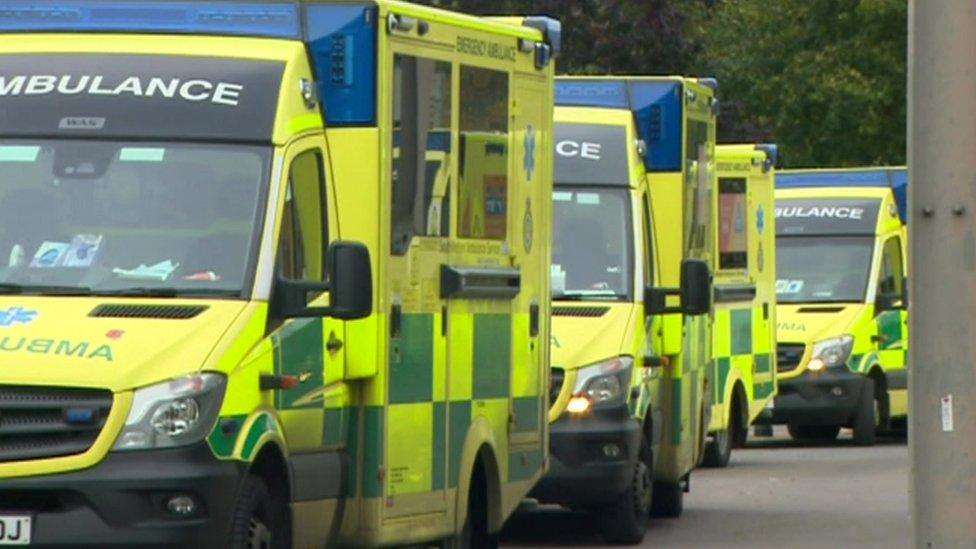Patient, 91, waits 15 hours for ambulance in Somerset
- Published
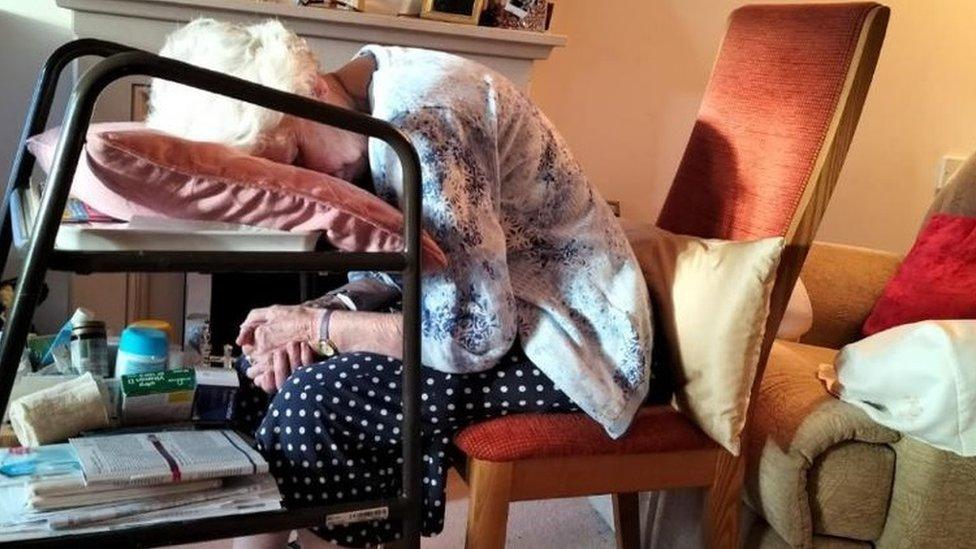
Annie had to lean on a table as she waited for the ambulance because she was in too much pain to leave her chair
The daughter of a 91-year-old woman who waited 15 hours for an ambulance said "something must be done" about delays.
Elaine Kent's mother Annie Baynes sat up all night in pain in her home in Burnham-on-Sea, Somerset, as her daughters made multiple calls to 999.
She was eventually admitted to hospital, where doctors found she was suffering from "severe" osteoporosis.
South Western Ambulance Service (SWAST) said the system had come under "sustained pressure".
Mrs Kent said her mother had developed severe pain in one of her legs on Wednesday afternoon.
"We thought she had broken a bone. She could not walk, she couldn't move," she said.
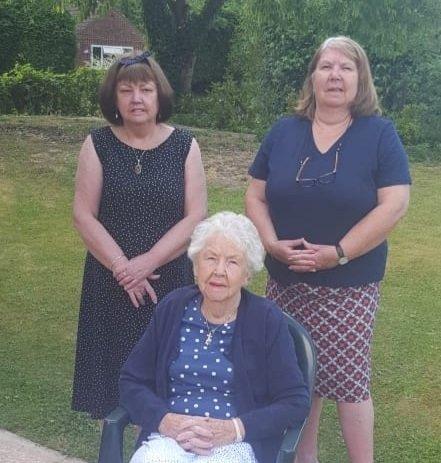
Mrs Baynes' daughters both called 999 throughout the night
"She was very distressed, so we called 999.
"We were told that we were on a list and that the ambulance would be on its way but they couldn't give us a time.
"So my sister and my mum sat and waited, and waited and time crept on."
Mrs Kent said by 21:00 BST her mother was "very upset", and so the daughters made further 999 calls.
"I asked could we have an estimated arrival time and they said no, they couldn't give us one and they were extremely busy. So we waited again," she said.
More calls were made at midnight, she added, but it was not until 08:00 BST on Thursday that the ambulance finally arrived.
Mrs Baynes was taken to hospital in Weston-Super-Mare, where doctors diagnosed her with severe osteoporosis.
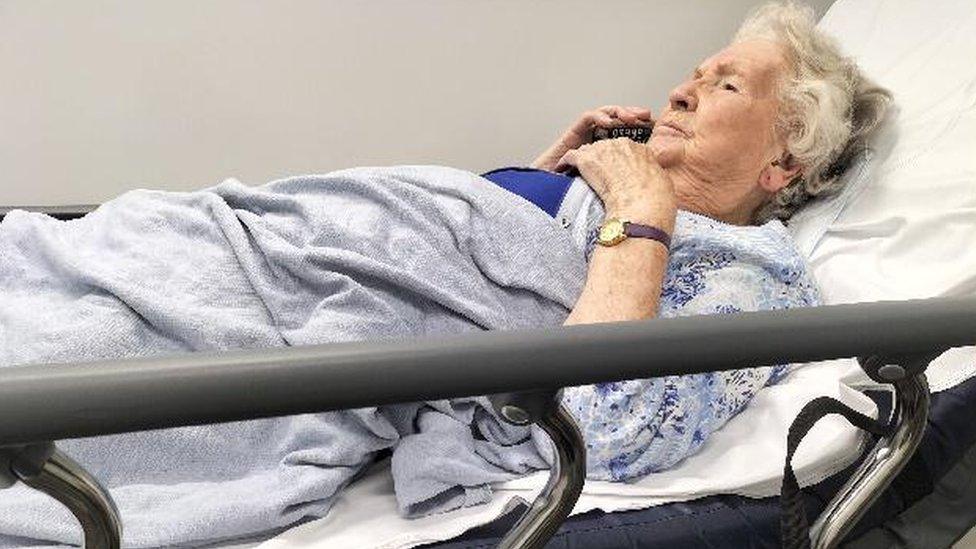
Mrs Baynes was taken to hospital in Weston-super-Mare
Her daughter said the staff in Weston were "fantastic" but that "something has to be done" about the lack of available ambulances.
"They [the NHS] are under incredible pressure but when you are told an ambulance is on its way and when it eventually arrives 15 hours later you are told there were no ambulances on the road all night - we weren't aware of that," she said.
"I would imagine they were queued up outside hospitals. There are not enough ambulances on the road, there are not enough drivers."
'Sustained pressure'
A spokesperson for SWAST said: "The whole health and social care system has been under sustained pressure for many months meaning patients are having to wait longer for an ambulance than they would expect.
"Our performance has not returned to pre-pandemic levels which is partly due to handover delays caused by capacity issues in hospitals and in community and social care as well.
"This means it's currently taking us too long to get an ambulance to patients.
"We continue to work on a daily basis with our partners to ensure our crews can get back out on the road as quickly as possible to respond to other 999 calls."

Follow BBC West on Facebook, external, Twitter, external and Instagram, external. Send your story ideas to: bristol@bbc.co.uk , external
- Published27 June 2022
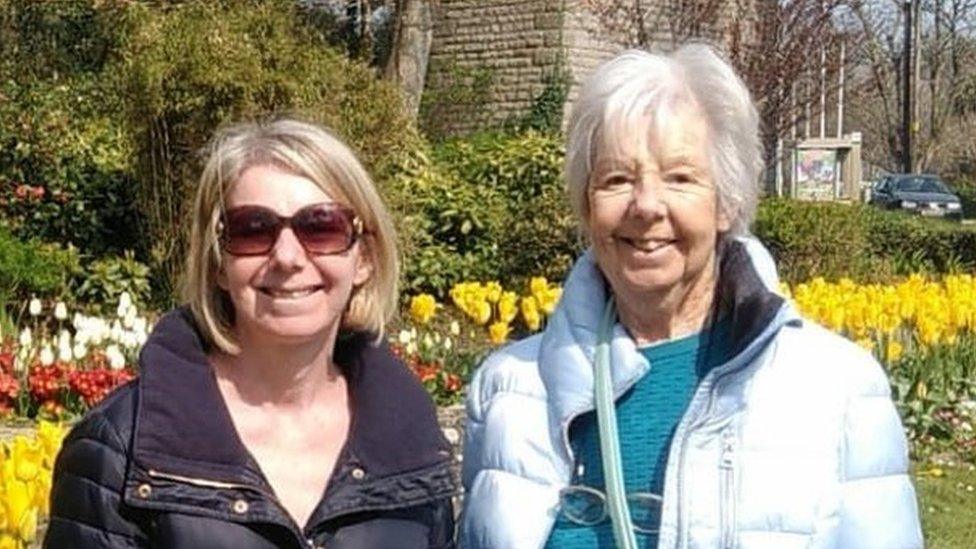
- Published29 December 2021
